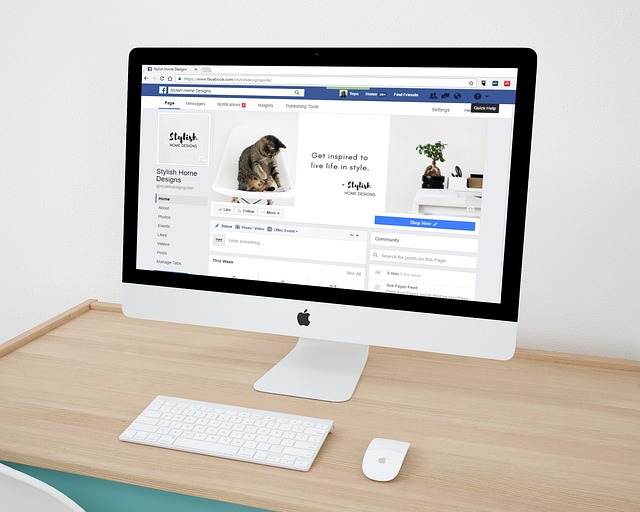Can Enterprise Resource Planning (ERP) systems incorporate Customer Relationship Management (CRM)? Is it feasible or even beneficial for businesses to do so? And if so, what complexities might this introduce? A holistic approach to business process management has recently caught the attention of many, yet it is not entirely without its complications. It requires a deep-dive into these questions to understand the intersection of ERP and CRM.
ERP systems and CRM solutions can operate in silos, leading to a major disconnect, miscommunication, segmentation, and hence inefficiencies, as cited by Deloitte and IBM. This operational mismatch often results in sub-optimal services, customer dissatisfaction, and eventually potential loss of revenue. To address this, the integration of ERP and CRM has been proposed. This integration would ensure a seamless flow of data and processes, thereby enhancing overall business operations. However, the challenge lies in successful integration due to complexities such as technical compatibility, data integrity, and workforce adaptability.
In this article you will learn about the intricate relationship between ERP and CRM. It elucidates the potential benefits of their integration, the associated challenges, and how these may be mitigated. It explores real-world examples of businesses successfully merging these systems and the substantial improvement in their operational efficiency. The article also sheds light on the possible drawbacks and how they can be minimized for smooth execution.
So, if you are curious about the fusion of ERP and CRM or considering implementing it in your organization, this article will provide some valuable insights. You will understand whether it is a viable and fruitful combination or an unnecessary complication. It leaves you better informed, enabling you to make the best business decision.

Definitions: Understanding ERP and CRM Integration
To understand if Enterprise Resource Planning (ERP) can include Customer Relationship Management (CRM), let’s first define these terms.
ERP is a business management software that allows an organization to use a system of integrated applications to manage the business and automate many back-office functions related to technology, services, and human resources.
CRM, on the other hand, refers to strategies, technologies, and practices used by companies to manage and analyze customer interactions and data throughout the customer lifecycle. Its sole purpose is to improve business relationships, specifically focusing on customer retention and ultimately driving sales growth.
Now, while these are separate systems with specific roles, it’s important to note they can be integrated to optimize efficiency and improve business performance.
Business enterprise applications
Microsoft 365 Apps for Enterprise
Enterprise Business apps generator
Illuminating the Intersection: CRM and ERP Coexistence
When contemplating the integration of Enterprise Resource Planning (ERP) and Customer Relationship Management (CRM), the potential benefits for businesses cannot be ignored.
Integration Possibilities
Undeniably, ERP and CRM are two complementary systems with distinct functionalities. ERP manages business resources, streamline processes and facilitates seamless internal communication. On the other hand, CRM is customer-centric, focusing on improving customer experience, fostering customer loyalty and driving sales growth. Integrating the two could bring out a harmony that could significantly improve a company’s efficiency and productivity.
This integration is achievable primarily because both ERP and CRM systems revolve around data. ERP collects and analyzes data relating to a business’s resources, such as inventory, workforce, finance, among others. CRM collects customer data, which it uses to drive sales and customer relationship strategies. By integrating the two, businesses create a single data reservoir that consolidates and synchronizes all information relating to both resources and customers. Information becomes more accessible, easy to interpret, and ready for decision-making processes.
Pros and Cons of Integration
Like any other system integration, the integration of ERP and CRM has its advantages and potential downsides. For instance, this integration reduces data duplication and provides a 360-degree view of business operations. It facilitates better data analysis, quick decision making and prevents departmental silos. On the downside, such integration requires significant resources in terms of time and monetary investment. Also, it becomes necessary to re-train staff to use the new system effectively.
- Pros:
- Integrates all business data under one platform.
- Fosters better communication and collaboration among departments.
- Decreases operational costs due to increased efficiency.
- Improves customer satisfaction levels by providing customized experiences.
- Cons:
- Requires significant investment.
- Potential resistance from staff due to change in workflow.
- Requires time for the staff to learn and adapt to the new system.
The Way Forward
Despite the challenges, the advantages of integrating ERP and CRM far outweigh the potential downsides. The key is to carry out a careful evaluation to determine the right combination of systems that best suits your specific needs. Start by identifying your business goals, then evaluate different ERP and CRM systems based on functionality, cost, scalability, and vendor credibility. You also need to involve your team in the decision-making process, to ensure they understand the benefits of the new integrated system and are ready to make the necessary adjustments. In the end, advancing technology is making this integration easier, efficient and more beneficial for both small and large businesses.
Unraveling the CRM Integration into ERP: A Game Changer
Does ERP Lead to a More Robust CRM Strategy?
One cannot help but wonder – what role can ERP play in enhancing CRM? At first glance, Enterprise Resource Planning (ERP) might seem unrelated. It’s all about integrating various business processes, from procurement and inventory management to finance and human resources. But when you delve deeper, you will find that it’s this integration of distinct facets that becomes the key in enhancing Customer Relationship Management (CRM).
The primary challenge lies in creating a unified view of customer data (often termed as ‘360-degree customer view’). Too often, businesses are stuck with separate ‘data silos’. Sales data is under the sales department’s jurisdiction, marketing information rests with marketing, and so on. This results in a fragmented view of customers, where one department doesn’t know what the other is doing or has done in the past. This miscommunication can lead to inconsistencies in the way customers are treated, leading to reduced customer satisfaction.
ERP-CRM Integration: Unifying Business Processes for Better Customer Relations
Increasingly, businesses are turning to ERP to overcome this hurdle. By integrating distinct business processes, ERP creates a centralized data store, where data from various departments is consolidated. When this ERP system is integrated with CRM, the magic happens. A concrete example of this is seen in the automotive industry. Car dealerships often have separate departments dealing with new car sales, used car sales, car servicing, and parts. Without ERP, these departments operate independently. But when an ERP is employed, data from all these departments is integrated. As a result, when this combined ERP data is linked with CRM, their sales team can now track whether a customer has recently gotten their car serviced or bought parts. They can use this information to better tailor their sales pitches, improving conversions, and enhancing overall customer relationships.
Another striking illustration comes from the education sector. Universities often have disparate systems for admission, student services, and alumni relations. By employing an ERP solution, they can integrate all the data into a unified system. When this data is instead used in CRM, the universities can retain a complete record of a student’s journey, from an applicant to an alumnus. They can utilise this data to foster better relationships, aid fundraising efforts, and provide personalised assistance. Through these examples, it becomes abundantly clear that ERP’s role cannot be understated in enhancing CRM capabilities.
ERP and CRM: Blurring Boundaries for Enhanced Business Efficiency
The Interlacing of ERP and CRM: A Fusion Leading to Business Success
Have you ever considered the merging of Enterprise Resource Planning (ERP) and Customer Relationship Management (CRM)? When truly understood, the unity of ERP and CRM can bring about extensive business solutions, promoting efficiency and productivity. ERP focuses on back-office operations which comprise the logistics of business processes, such as product planning, direct purchasing, and cost management associated with production. On the other hand, CRM is responsible for managing a company’s relationship with its customers. By aligning the two, businesses can leverage both the internal and external data, creating a consistent flow of information within the company, which ultimately facilitates decision making, decreases operation cost, and increases profitability.
The Conundrum of Unintegrated Systems
The major concern causing turbulence in most business paradigms is the lack of integration between the different software units. Despite the fact that both ERP and CRM systems hold substantial importance on their own, the lack of connection between the two often gives rise to isolated information silos. This limited visibility and miscommunication can lead not only to duplication of effort but also to potential errors and inconsistencies in the data. For an organization to strategically map out its path, it needs to have a holistic understanding of all aspects of its operations – from supply chain management to client relations. Without integrated systems, this comprehensive view cannot be achieved, hampering the firm’s ability to plan, implement and track the progress of its strategies.
Unveiling the Synergy of ERP and CRM
Several companies stand as shining examples of organizations successfully leveraging the synergy between ERP and CRM. For instance, Zara, the global fashion brand, has adopted a sophisticated integrated system that seamlessly combines its ERP and CRM functionalities. This integration has drastically improved its supply chain efficiency, inventory management, and customer satisfaction, enabling the business to respond swiftly to changing customer preferences and market trends. Similarly, Siemens, the multinational conglomerate, has successfully eliminated information silos by integrating its ERP and CRM. This has brought about a holistic view of the business, from production to customer feedback, contributing to improved decision-making and business performance. These examples demonstrate the feasibility and benefits of ERP and CRM integration, shedding light on how this can offer comprehensive business solutions. Evidently, the golden key to organizational success lies in harnessing this powerful combination.
Conclusion
Is it really feasible to integrate customer relationship management (CRM) into an enterprise resource planning (ERP) system? As we have seen throughout this article, it is not only possible but can prove to be highly beneficial and profitable. A unified system fosters better communication, seamless processes, improved decision making, and increased productivity. By encompassing all business operations, including CRM, into a single, integrated solution, businesses can optimize their efficiency and maximize their resources. Hence, in the competitive world of business, it makes sense to take advantage of ERP’s potential to include CRM for prolific growth and success.
We appreciate your interest in our blog and extend a warm invite to join our community by following us. We regularly delve into such interesting, nuanced aspects of different technological and business developments worldwide. Your continuous engagement motivates us to explore more and provide up-to-date, comprehensive insights on a plethora of topics. We believe in enabling our readers with information and critical viewpoints that add significant value to their professional lives.
We cannot wait for you to read our next release, where we shall venture into yet another intriguing facet of business technology. With the pace at which technology is progressing, there is always more to learn and a multitude of topics to discuss. We promise to keep you abreast of the latest trends, ground-breaking developments, and enlightening discussions that are shaping our business world today. Stay tuned for more thought-provoking pieces and insightful analyses. After all, the more you know, the further you can go.
F.A.Q.
Yes, most modern ERP systems have the capacity to include CRM features. This brings about a more centralized system where you can manage your business processes and customer relations in one platform.
2. Do all ERP systems come with built-in CRM modules?
Not all ERP systems come with a built-in CRM. Some providers opt to create separate CRM systems though others offer CRM as part of their ERP solutions to provide an all-in-one business management system.
3. What benefits does integrating CRM with ERP bring?
Integrating ERP and CRM systems could result in improved efficiency and productivity. Since all data is in one place, there’s better visibility and forecasting, improving decision-making processes.
4. Are there any downsides of integrating CRM into an ERP system?
One key downside could be the potential complications that may arise during the integration process, such as system compatibility issues. Another could be the increased cost, as integrated solutions might be more expensive than standalone systems.
5. Can I customize the CRM components of an ERP system to meet my business’s specific needs?
Yes, most ERP systems with CRM modules allow for customization. This would let you tailor the system to better cater to your specific business requirements and processes.



